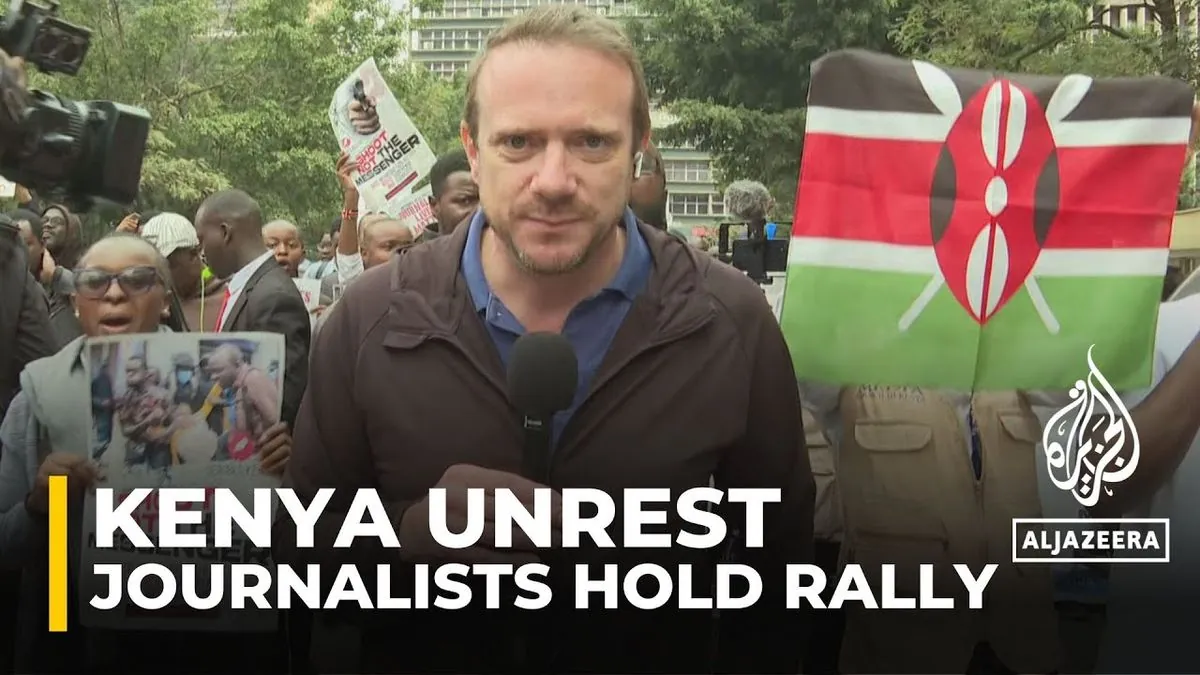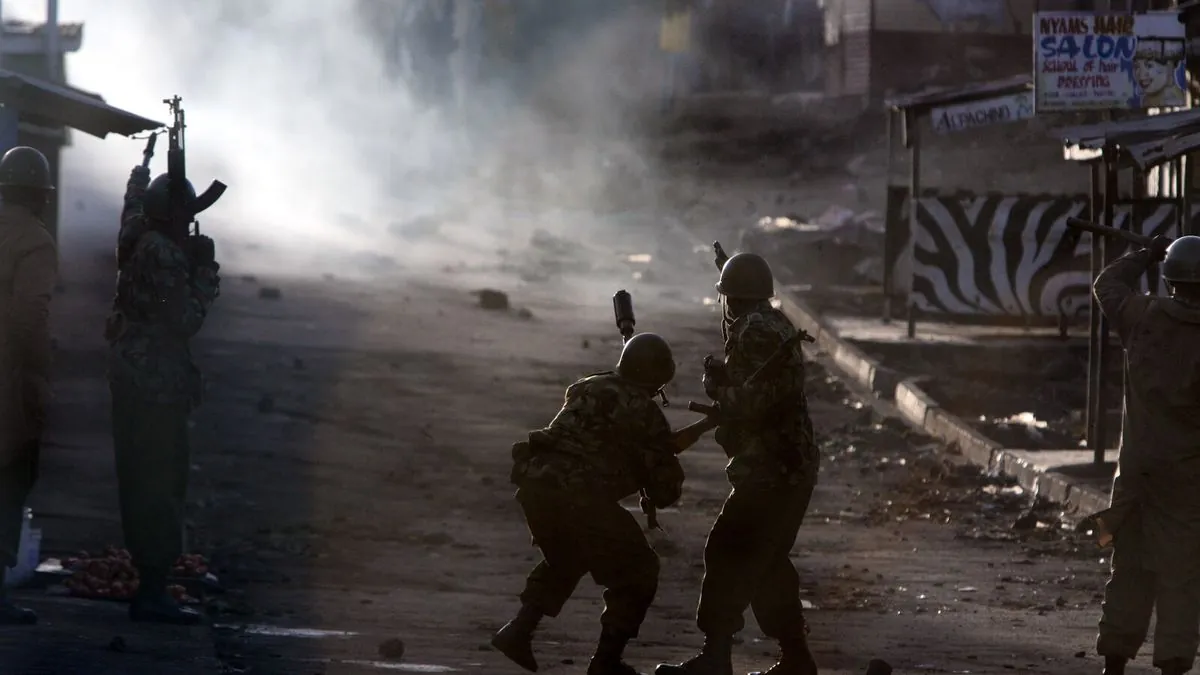Press Freedom Under Siege: Kenya's Journalists Face Mounting Threats
Kenyan journalists confront escalating violence and suppression amid anti-government protests. As press freedom deteriorates, the U.S. grapples with balancing its strategic alliance and human rights concerns in the East African nation.

In a troubling development for press freedom in Kenya, journalists are facing increasing dangers while covering anti-government protests. The situation has raised concerns about the state of media rights in the East African nation, which has long been considered a beacon of democracy in the region.
Catherine Wanjeri wa Kariuki, a TV journalist for MediaMax Network, became a victim of this escalating violence in mid-July 2024. Despite wearing a press vest and carrying a labeled microphone, Kariuki was shot three times with rubber bullets by police while reporting on protests in Nakuru County. Her experience is not isolated, as numerous journalists have been targeted during the ongoing demonstrations.
The protests, which began in mid-June 2024, were initially sparked by proposed tax hikes aimed at addressing Kenya's substantial debt. However, they have since evolved into broader demonstrations against perceived corruption and mismanagement under President William Ruto's administration. The government's response has been heavy-handed, resulting in the deaths of at least 50 protesters.

The Media Council of Kenya has documented 24 incidents against journalists, including abductions, beatings, and online harassment. Alarmingly, 10 of these incidents were directly attributed to police actions. This deterioration of press freedom is particularly concerning given Kenya's history:
"Kenya's 2010 constitution is considered one of the most progressive in Africa, particularly in terms of civil liberties."
However, the reality on the ground paints a different picture. Kenya's press freedom ranking has plummeted from 69th to 116th in the 2023 Reporters Without Borders World Press Freedom Index. This decline is part of a broader pattern of eroding civil liberties under Ruto's leadership.
The situation presents a dilemma for the United States, which has cultivated close ties with Kenya. In June 2024, Kenya was designated as a major non-NATO ally, the first in Sub-Saharan Africa. This strategic partnership is complicated by Kenya's geopolitical importance:
- Kenya is the largest economy in East Africa
- It serves as a key ally in counterterrorism efforts
- The country is a major hub for technology and innovation, often called the "Silicon Savannah"
Despite these strategic considerations, the U.S. has faced criticism for its muted response to the press freedom crisis. While U.S. Trade Representative Katherine Tai noted Kenya's failure to protect "free expression and media" in a biennial report, many feel this response has been inadequate.
In the last week of July 2024, Kenyan journalists took matters into their own hands, organizing protests across the country. They marched through Nairobi's business district, chanting "journalism is not a crime" and demanding thorough investigations into attacks on media professionals.
As Kenya grapples with these challenges, the international community watches closely. The country's journey from a progressive constitution to its current state serves as a stark reminder of the fragility of press freedom and the need for constant vigilance in its defense.


































